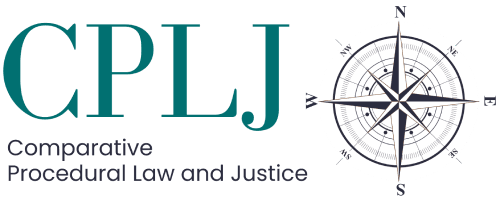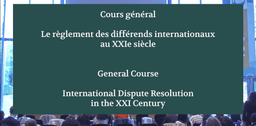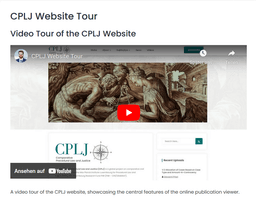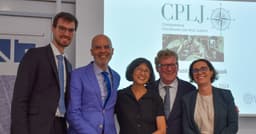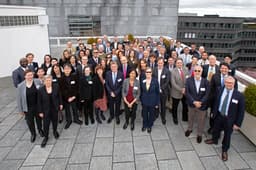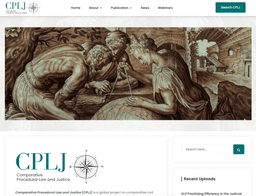Parts
Every team of authors was responsible for a thematic part. Particularly, the thematic parts and the teams responsible for them were the following:
Part 1: Introduction
Burkhard Hess, Margaret Woo, Loïc Cadiet, Séverine Menétrey and Enrique Vallines (editors), Marie-Claire Foblets.
Part 2: Organization of the Civil Justice System and Judicial Independence
Eduardo Oteiza (Coordinator), Yulin Fu, John Sorabji, Alan Uzelac, Hermes Zaneti Jr. With collaboration of Inga Jarvekulg.
Part 3: Access to Justice and Costs of Litigation
Wolfgang Hau (Coordinator), Petra Butler, Shusuke Kakiuchi, Ramon Feldbrin, Séverine Menétrey, María Luisa Villamarín López. With collaboration of Anastasia Trubacheva.
Part 4: Constitutionalization and Fundamentalization of Civil Procedural Guarantees and Principles
Frédérique Ferrand and Beate Gsell (Coordinators), Sergio Cruz Arenhart, Tanja Domej, Jordi Nieva Fenoll, Younghwa Moon, Magdalena Tulibacka. With collaboration of Konstantin Branovitskii and Giovanni Chiapponi.
Part 5: Jurisdiction and Venue of the Court
Peter C.H. Chan (Coordinator), Scott Dodson, Kamalia Mehtiyeva, Mohamed Paleker, Giovanni Priori Posada, Caterina Silvestri. With collaboration of Marco de Cristofaro, Felix Koechel and Marco Buzzoni.
Part 6: Structure of Civil Litigation
Stefan Huber (Coordinator), Kangnikoé Bado, Aleš Galič, Aluisio Gonçalves de Castro Mendes, Linda S. Mullenix, Anna Nylund, Enrique Vallines, Janek Nowak. With collaboration of Shiro Kawashima and Majid Pourostad.
Part 7: Access to Information. Evidence
Richard Marcus (Coordinator), Talia Einhorn, Leandro Giannini, Kiochi Miki, Michael Stürner, Leon Marcel Kahl.
Part 8: Final Judgment, Appeals and Review
Luca Passanante (Coordinator), Carlo Vittorio Giabardo, Viktória Harsági, Yin Jin, Gerard Kennedy, Daniel Mitidiero. With collaboration of Christoph Kern, Piotr Rylski, Wendy Perdue, Philippos Siaplaouras and Hannah Deters.
Part 9: Digital Revolution and Procedure
Fernando Gascón Inchausti (Coordinator), Karim Benyekhlef, Paolo Comoglio, Aera Han, Björn Laukemann, Magne Strandberg. With collaboration of Giorgia Spolverato.
Part 10: Collective Litigation
Teresa Arruda Alvim (Coordinator), Alexandre Biard, Theo Broodryk, Deborah Hensler, Elisabetta Silvestri, Stefaan Voet, Francisco Verbic. With collaboration of Priyanka Jain.
Part 11: Special Forms of Procedures
Soraya Amrani Mekki (Coordinator), Wei-Yu Chen, Maryellen Fullerton, Xandra Kramer, Guillermo Ormazabal Sánchez, Fernanda Medina Pantoja, Vincent Richard. With collaboration of Walter Bruno.
Part 12: Special Subject Matters
María-José Azar-Baud, Wannes Vandenbussche and Catherine Piché (Coordinators), Stephanie Law, Volker Lipp, Kuan-Ling Shen, Piet Taelman, Lena Hornkohl. With collaboration of Irena Ryšánková and Marlene Brosch.
Part 13: Enforcement
Masahisa Deguchi (Coordinator), Wendy Kennett, Rudy Laher, Michele Angelo Lupoi, Álvaro Pérez Ragone. With collaboration of Hector Zhixun Cao and Carlos Santaló Goris.
Part 14: Cross-border and International Dimensions
Geneviève Saumier (Coordinator), Gilles Cuniberti, Burkhard Hess, Justin Monsenepwo, Maciej Szpunar, Krysztof Pacula, Louise Ellen Teitz and Marta Requejo Isidro.
Part 15: Consensual Dispute Resolution and Arbitration
Antonio Cabral and Remo Caponi (Coordinators), Nadja Alexander, Shahla Ali, Helena Soleto Muñoz, Felix Steffek and Jorge A. Rojas. With collaboration of Habiba Abubaker, Serhii Kravtsov, Martina Mantovani, Stavroula Angoura and Motoko Yoshida.
Part 16: Outlook
Burkhard Hess, Margaret Woo, Loïc Cadiet, Séverine Menétrey and Enrique Vallines (editors).
